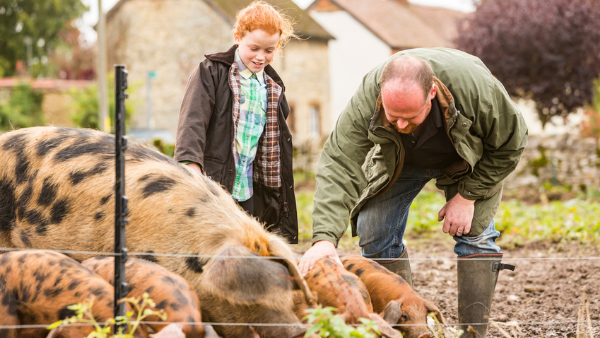Authors
[Read time: 2 minutes]
The introduction of the Agriculture Act 2020 is only the start of what is set to be the biggest shake up to the agriculture sector since the Second World War. Many have heralded the transition the sector is expected to undergo as the fourth revolution in agriculture. The industry is gearing up to take on the challenge of tackling biodiversity loss, climate change and the issue of food security. Facilitating the route to succession is considered central in aiding the adaption of the industry.
On 11 November 2020, Charlotte Razay and Rachel O’Connor of Michelmores LLP hosted a workshop on behalf of the FFCC (The Food, Farming and Countryside Commission), chaired by David Fursdon. The workshop was attended by 13 farmers, professionals and academics. The workshop provided a forum for discussion of key issues concerning family farming succession.
The FFCC is focussed on bringing ideas to reality but to achieve that, recognises there are a number of challenges the sector faces, which must be overcome. It is widely recognised that we need a generation who feel inspired and empowered to drive change forward.
Over the last 30 years, as evidenced by research conducted by Professor Matt Lobley, Rural Policy Research (and attendee of the workshop), what we still see is that only percentage of farmers expect to fully retire (19%) and over a quarter (27%) had not discussed later life plans with anyone at all. What is clear is there is often a reluctance to hand over the reins to the next generation. This is not a new concept but what is clear is that change is not moving forwards quick enough.
At the workshop, David Fursdon led an energetic discussion on not only the challenges faced by farming families when considering the issue of succession but also the potential solutions.
Challenges to Succession
The key themes appear to be:-
- Tax – the need to avoid a potentially significant Inheritance Tax bill on death.
- The reluctance to hand over control and to retire.
- A lack of successor.
- Multi-generational families and choosing the appropriate successor.
- Minimum age for retirement of Agricultural Holdings Act 1986 tenancies.
Solutions to Succession Challenges
Discussion on solutions included:
- Recognising the importance of family governance in scheduling regular meetings for discussion and planning on issues concerning the business including succession;
- Encouraging early communication and how advisors can assist in providing a forum for discussion as well as helping to overcome barriers to communication;
- Prioritising family ambitions for the future and co-ordinating tax planning in response rather allowing future plans to be determined by issues of tax;
- Financial planning to provide for retiring farmers; and
- Supporting the next generation to develop the necessary skills and knowledge required to manage a business including nurturing entrepreneurial aspirations.
Emma Rudge of the Family Business Consultancy also presented to the group on tools and strategies to help families with their succession planning, including a consideration of the key sticking points which are often common to farming families.
The importance of assisting farming families with the intergenerational transition of businesses has also been recognised in the new Agriculture Act 2020. The Act will overhaul funding support for farming with the aim of providing powerful incentives to achieve the Government’s 25 year Environment Plan and net zero emissions commitments. As part of that, it is planned that lump sum payments will be available for those wishing to retire from and exit the industry Agriculture Act 2020: Planning a lump sum exit should start now. In addition, the required age of 65 for service of a retirement notice under the Agricultural Holdings Act 1986 is removed.


